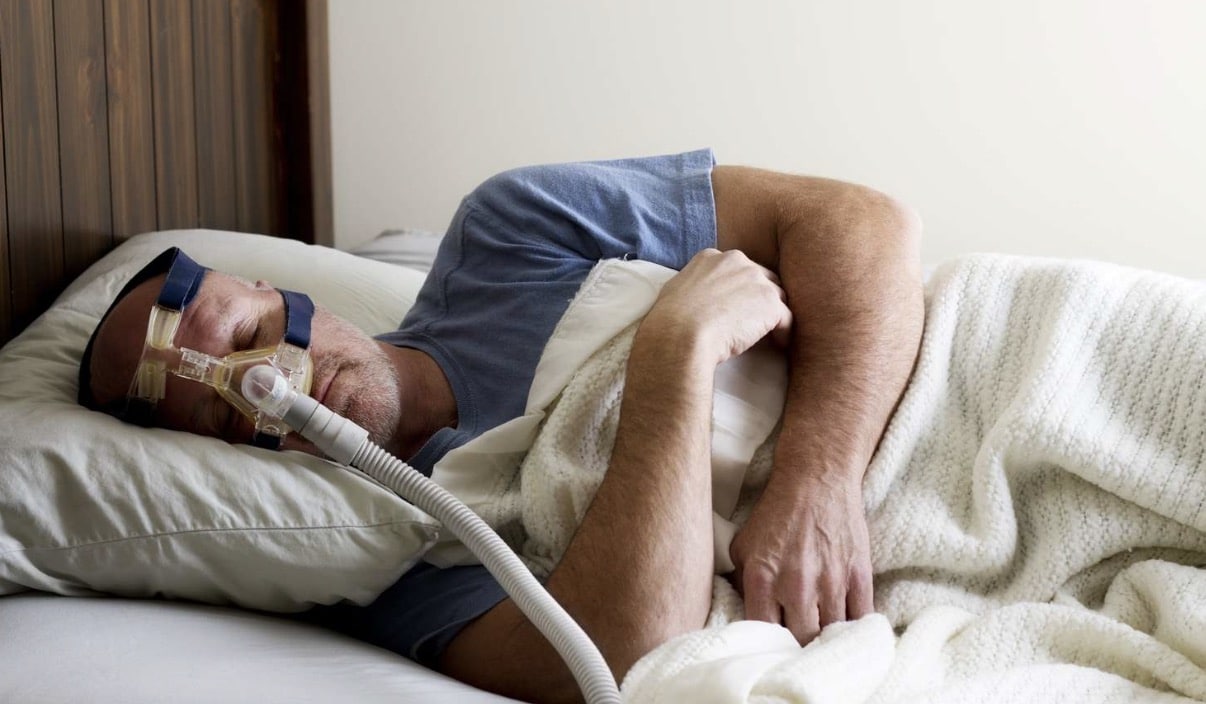Understanding sleep apnea can be tricky. Sometimes, even doctors get it wrong, leading to unnecessary tests and treatments. One important type to grasp is complex sleep apnea, also known as treatment-emergent sleep apnea. It’s vital to know its symptoms, causes, diagnosis, and the best treatments, if needed.
Table of Contents
What is Complex sleep apnea?

Complex sleep apnea, or treatment-emergent central sleep apnea, happens when obstructive sleep apnea (when the throat collapses during sleep) turns into central sleep apnea due to CPAP treatment.
Obstructive sleep apnea occurs when the throat collapses during sleep, causing drops in oxygen levels and arousals. CPAP therapy delivers air through a mask to prevent airway collapse and snoring. However, in some cases, it can lead to central sleep apnea.
Complex sleep apnea arises when central apnea events occur alongside resolved obstructive events during CPAP therapy. These central apnea events must happen at least five times per hour and make up more than 50% of all apnea and hypopnea events.
If the majority of events are not central apnea events, it’s not complex sleep apnea. Some central apnea events may not need extra treatment.
How Common Is Complex Sleep Apnea?
Complex sleep apnea occurs in about 20% of people during CPAP therapy for OSA, but only around 2% continue to have symptoms long-term. It’s often spotted during pressure adjustments on PAP or BiPAP machines.
In rare cases, it’s diagnosed after a month or more of treatment, affecting less than 4% of people on PAP therapy.
What Causes Complex Sleep Apnea?
The exact causes of complex sleep apnea aren’t fully known. It could be linked to breathing control issues, difficulty maintaining sleep, or low carbon dioxide levels.
Risk factors include severe initial sleep apnea, more central apnea events, and being male.
Other sleep apnea treatments like surgery or oral appliances might also increase the risk. Improper PAP therapy pressure settings can also play a role.
What Are the Symptoms of Complex Sleep Apnea?
Symptoms of complex sleep apnea can vary, but may include:
- Daytime fatigue
- Poor sleep quality
- Frequent nighttime waking
- Morning headaches
- Chest pain or discomfort
- Difficulty concentrating
- Mood changes
Unlike OSA, snoring is not typically a symptom of complex sleep apnea.
How is Complex Sleep Apnea Diagnosed?
Diagnosing complex sleep apnea can be tricky because its causes vary. It shares features with obstructive sleep apnea (OSA) but involves unstable breathing control leading to central apneas.
Diagnosis typically involves a sleep study (polysomnography) and follow-up tests for underlying conditions like heart disease.
It’s often diagnosed in CPAP patients when therapy isn’t effective or if airflow levels are incorrect.
Genetic predisposition, being male, low carbon dioxide levels, Cheyne-Stokes respiration patterns, and obesity-related hypoventilation can all increase the risk.
Complex Sleep Apnea Treatment
Complex sleep apnea can often resolve with CPAP therapy over time. If symptoms persist, a repeat sleep study is done. If complex sleep apnea persists, treatment options include Adaptive Servo-Ventilation (ASV) or BiPAP with a backup rate.
ASV adjusts air pressure based on breathing patterns, promoting regular breathing during sleep. However, it’s not suitable for everyone, particularly those with heart failure.
BiPAP delivers varying air pressures during inhalation and exhalation, with a backup rate to ensure adequate breathing. It’s another option if ASV isn’t suitable. However, central apnea events may return in some cases, so treatment is tailored based on the individual’s medical history and sleep problems.
For mild cases of sleep apnea, you may consider using some anti-snoring devices or anti-snoring mouthpieces.